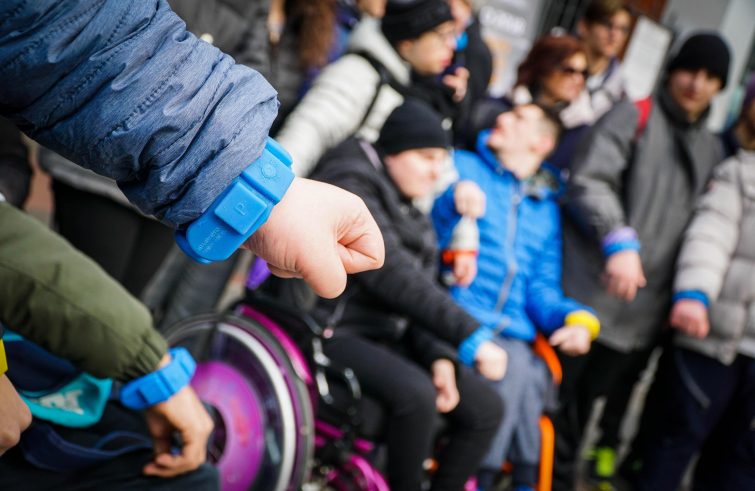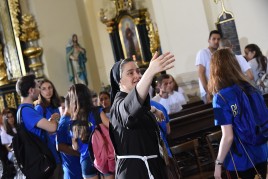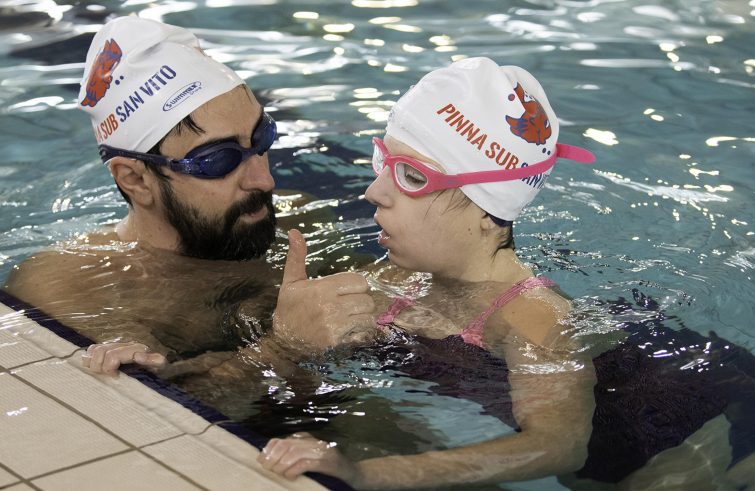
“The Italian Church does not speak about them, but with them. People with disabilities ought to play an increasingly important role in decision-making, in the management of events and in positions of responsibility. We would like the directions of the Magisterium and the Word of God to become everyday practice”. Sister Veronica Amata Donatello, in charge of the Italian Episcopal Conference’s Service for the Pastoral Care of Persons with Disabilities, shares her thoughts the day after the publication of the Note of the Pontifical Academy for Life “Friendship with persons with disabilities. The beginning of a new world”

Which new elements are contained in the text?
This document has a global perspective. Everyone has the right to health and to access information as an individual. It is a fundamental right that cannot be treated as a matter of benevolence or of a good heart. We all share the same condition as human persons, and the pandemic has shown how difficult it is to respect this criterion. The Note reiterates this point strongly and emphatically. Providing medical treatment to our fellow other is not enough, because others also have a life to live. Suffice it to mention people with autism, whose daily habits and routines have been disrupted, whose lifestyles have been changed. There has been no accompaniment to support them in this personal process, and we too have not lived up to the challenge. No piece of information took into account the diversity of communication needs. If this aspect is neglected, 60% of persons with disabilities needing special forms of communication will be left out.
There is a right to health, but there is also a right to access information and accompaniment. The family and caregivers, who lack the tools to deal with such critical situations, must be granted special assistance. Some parents have had to act as physiotherapists, nurses, educators and psychotherapists. And that’ s not fair.
The pandemic, the Note states, has disproportionately impacted the lives of people with disabilities and their caregivers.
It came as a great shock. Our societies are discussing ways to help young and able-bodied persons to overcome this difficult period. However, only a few are considering the issue from the perspective of persons with disabilities. Some families with children with multiple disabilities are afraid to send them back to school in September, because they spent a year and a half in their homes without seeing relatives or colleagues. It was like an earthquake.
Sometimes it’s as if we were voiceless, unable to speak out.
The Pope reminds us that one of the sins of the Church is the failure to listen. We must admit it: sometimes we did not listen, in the belief that restoring certain practices would bring everything back to normal. But that’s not the case and we must acknowledge it.
Yet Italy stands out as a positive exception in terms of its accompaniment capacity…
Italy has a Mediterranean style of welcome and accompaniment. In places with a vibrant community and where the family is close to the community, fundamental support was available. However, in the case of families disconnected from the local environment, it was very difficult. Parents were extremely frightened: who will accompany them now? Sometimes our answers risked being standardised, the same solution for all. That was not the case.
Italy’s strength lies in those communities that responded by offering care and support.

The document refers to “the teaching authority of disability.”
Most documents released after the Second Vatican Council devote special attention to the issue of disability. Not as a quota for participation in the life of the Church, but as the consciousness of belonging to the people of God.
Persons with disabilities and their families, if listened to, are a precious gift to the Christian community.
Not in a passive way. The Magisterium has a vision of parrhesia, the implementation of which is unfortunately left to us. And we often fail to meet this expectation.
Is it time to involve persons with disabilities in the Church?
The Italian Church does not speak about them, but with them. People with disabilities ought to play an increasingly important role in decision-making, in the management of events and in positions of responsibility. We would like the directions of the Magisterium and the Word of God to become everyday practice. It is not enough to appoint a disabled person as the organiser of an event, but this should become the norm.
It’s not a matter of quotas, that is not the Church we want.
The Magisterium is clear about this: persons with disabilities have undergone a journey during which they discovered their self-worth. The Church can make a difference and she is proving it. We must have the courage to be equal.










